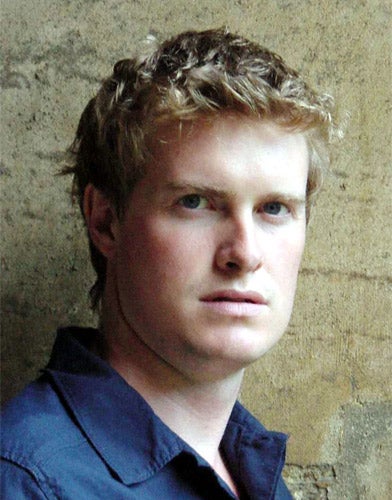The Week In Radio: Keep taking a trip down memory lane

There are times when the whole of BBC radio seems in the grip of one vast, unstoppable wave of reminiscence, like some garrulous granny of the airwaves whom no one likes to interrupt. Nostalgia is the order of the day. Here's just a small list of things people have been nostalgic about this week. The Berlin Wall. The M1 motorway. The BBC's Maida Vale studios. Victorian photography. Izal lavatory paper. Yes, lavatory paper! The nasty, hard, shiny kind. Incredibly there was an entire programme about this on Radio 4, Now Wash Your Hands, which examined how Izal was made, how it was good for writing on and playing with a comb. What it actually felt like on the skin. What feelings were aroused by its coal tar aroma. You can keep your madeleines, Marcel Proust. Here in Britain, we get misty-eyed over medicated loo roll.
Not that I have any problem with this. Given a world containing financial meltdown, Simon Cowell and Winterval, what's wrong with a bit of nostalgia? It's no more than a rational response. Is nostalgic reminiscence, however, the same as serious history? This knotty problem was tackled by the Today programme after a poll in the BBC's History magazine found that most people think that history includes everything pre-10 years ago. Memoirs and letters written before that could therefore be called proper historical accounts. Under that criterion, Alastair Campbell's diary would qualify and the historian Tristram Hunt was not having that. "We have a 30-year rule on public records and that's a good gap. Contemporary history, 10 or 20 years ago, provides an interesting chronicle, but whether you have the deeper context, the socio-economic fundamentals to provide a deeper meaning of history; I don't think you do."
Of course, the curious thing about nostalgia, witness the loo roll, is that things don't have to be good to inspire it. Indeed, sometimes, the badder the better. In The Day the Wall Fell, Jeremy Vine looked back at 9 November 1989 and found that some people in east Berlin are still wistful for the wall, the Trabant and the awful East German food. The trouble was, one man explained, when reunion came, the ethos of the West was overwhelming. "You had only consuming and everything we had was worthless," he said. There was no improvisation, or making do any more. "Sometimes I miss the sharing, the different spirit."
Interviews like this made for an insightful story of the divided city and despite Vine's occasionally Blue Peter-style narration, the horror still seeped through. Two and a half million escaped, but those who failed faced isolation in a padded, sensory deprivation cell. "If you are in a round room in complete darkness you can't orientate yourself and this was the ultimate imprisonment," recalled one prisoner. "No noise came in, so you sat in complete darkness and complete silence." Quite unlike this programme's intrusive soundtrack, then, which resembled something from a B-feature action movie – "Wall IV", perhaps – and seemed vaguely disrespectful to those who perished. There were scary violins to accompany the escape stories, thrilling scores when they succeeded, funeral marches when they got shot. Is there some dictat whereby Radio 2 must use music every few minutes? Are Radio 2 listeners unable to focus unless David Bowie or Chopin or "Ode to Joy" is loud-speakered over the script?
Still, if you wanted something really depressing this week, you had to listen to The Story of the Noughties. Setting aside the question of whether anyone in Radio 1's audience is interested in this kind of retrospective (my guess is not) we've got up to 2002 so far, a year apparently to be remembered for Ricky Gervais, The Cheeky Girls, Ms. Dynamite, the X Box and George Bush choking on a pretzel. Quite apart from the fact that calling the Cheeky Girls a cultural milestone makes Izal toilet roll look like the Bayeux Tapestry, the presentation left a lot to be desired. Fearne Cotton delivered most of the excerpts in two-second chunks to suit gnat-sized attention spans. Even the best productions of 2002 were splintered by vox pop and drowned by meaningless background music, uncannily like that annoying white noise communist dictatorships used to broadcast over BBC programmes to prevent anyone listening. It works.
In an otherwise great week for Radio 4, which has seen its audience soar to a 10-year high in what must be a vote of confidence for the innovations of Mark Damazer, came the sad death of Norman Painting who played Phil in The Archers. His character was the very heart of the story, the touchstone which somehow embodied everything unflappable and British. Given everything we needn't be nostalgic about, here's someone we will genuinely miss.
Join our commenting forum
Join thought-provoking conversations, follow other Independent readers and see their replies
Comments